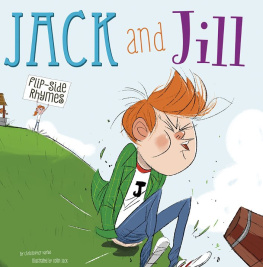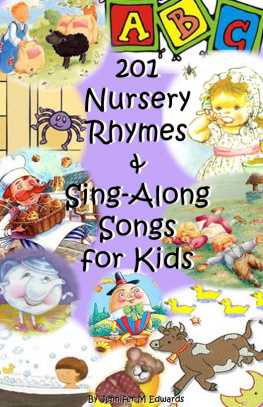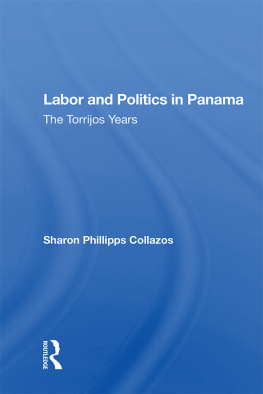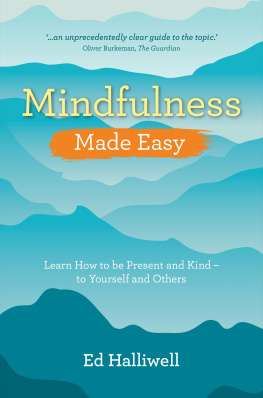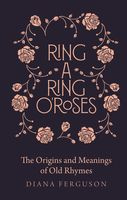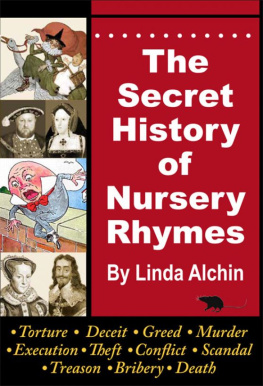POPULAR RHYMES AND NURSERY TALES.
LATELY PUBLISHED,
Royal 18mo, with 38 Designs by W. B. SCOTT,
Director of the School of Design, Newcastle-on-Tyne,
bound in illuminated cloth, 4s. 6d.
THE NURSERY RHYMES OF ENGLAND,
COLLECTED CHIEFLY FROM ORAL TRADITION.
BY JAMES ORCHARD HALLIWELL, ESQ.
FOURTH EDITION.
POPULAR RHYMES
AND
NURSERY TALES:
A SEQUEL TO THE
Nursery Rhymes of England.
BY
JAMES ORCHARD HALLIWELL, ESQ.
LONDON: JOHN RUSSELL SMITH,
4, OLD COMPTON STREET, SOHO SQUARE.
MDCCCXLIX.
C. AND J. ADLARD, PRINTERS, BARTHOLOMEW CLOSE.
Tales of my Nursery! shall that still loved spot,
That window corner, ever be forgot,
Where through the woodbine when with upward ray
Gleam'd the last shadow of departing day,
Still did I sit, and with unwearied eye,
Read while I wept, and scarcely paused to sigh!
In that gay drawer, with fairy fictions stored,
When some new tale was added to my hoard,
While o'er each page my eager glance was flung,
'Twas but to learn what female fate was sung;
If no sad maid the castle shut from light,
I heeded not the giant and the knight.
Sweet Cinderella, even before the ball,
How did I love theeashes, rags, and all!
What bliss I deem'd it to have stood beside,
On every virgin when thy shoe was tried!
How long'd to see thy shape the slipper suit!
But, dearer than the slipper, loved the foot.
ANON.
Contents
It were greatly to be desired that the instructors of our children could be persuaded how much is lost by rejecting the venerable relics of nursery traditional literature, and substituting in their place the present cold, unimaginative,I had almost said, unnatural,prosaic good-boy stories. "In the latter case," observes Sir Walter Scott, "their minds are, as it were, put into the stocks, like their feet at the dancing-school, and the moral always consists in good conduct being crowned with success. Truth is, I would not give one tear shed over Little Red Riding Hood for all the benefit to be derived from a hundred histories of Jemmy Goodchild. I think the selfish tendencies will be soon enough acquired in this arithmetical age; and that, to make the higher class of character, our own wild fictionslike our own simple musicwill have more effect in awakening the fancy and elevating the disposition, than the colder and more elaborate compositions of modern authors and composers."
Deeply impressed with this truth, and firmly convinced of the "imagination-nourishing" power of the wild and fanciful lore of the old nursery, I have spared no labour in collecting the fragments which have been traditionally preserved in our provinces. The object is not so much to present to the reader a few literary trifles, though even their curiosity and value in several important discussions must not be despised, as to rescue in order to restore; a solemn recompense due from literature for having driven them away; and to recall the memory to early associations, in the hope that they who love such recollections will not suffer the objects of them to disappear with the present generation.
In arranging the materials gathered for this little volume, I have followed, in some respects, the plan adopted by Mr. Robert Chambers, in his elegant work, the Popular Rhymes of Scotland; but our vernacular anthology will be found to contain so much which does not occur in any shape in that of the sister country, that the two collections have not as much similarity as might have been expected. Together, they will eventually contain nearly all that is worth preserving of what may be called the natural literature of Great Britain. Mr. Chambers, indeed, may be said to have already exhausted the subject for his own land in the last edition of his interesting publication, but no systematic attempt has yet been made in the same direction for this country; and although the curiosity and extent of the relics I have been enabled to collect have far exceeded my expectations, I am fully aware how much more can yet be accomplished. An additional number of foreign synonymes could also no doubt be collected; though perhaps more easily by foreigners, for Continental works which contain notices of traditional literature are procured with difficulty in England. The following pages, however, contain sufficient of these to exhibit the striking similarities between rhymes prevalent over England, and others which exist in the North of Europe.
The collection of Nursery Tales is not as extensive as could have been wished, but the difficulty of procuring the brief traditional stories which were current some century since, now for the most part only recollected in obscure districts, is so great, that no apology is necessary for the apparent deficiency of that section. The few which have been obtained are of considerable curiosity and interest; and I would venture to suggest to all readers of these pages the great obligation they would confer by the communication of any additions. Stories of this kind are undoubtedly to be obtained from oral tradition, and perhaps some of literary importance may yet be recovered.
The compiler's best thanks are due to Captain Henry Smith for the very interesting communication of rhymes current in the Isle of Wight; to Mr. George Stephens for several curious fragments, and valuable references to Swedish songs; and to many kind correspondents who have furnished me with rhymes current in the various districts in which they reside. It is only by a large provincial correspondence that a collection of this kind can be rendered complete, and the minutest information on any of our popular tales or rhymes, forwarded to the address given below, would be most thankfully and carefully acknowledged.
BRIXTON HILL, SURREY;
April, 1849.
POPULAR RHYMES
AND
NURSERY TALES.
Although the names of Scott and Grimm may be enumerated amongst the writers who have acknowledged the ethnological and philosophic value of traditional nursery literature, it is difficult to impress on the public mind the importance of a subject apparently in the last degree trifling and insignificant, or to induce an opinion that the jingles and simple narratives of a garrulous nurse can possess a worth beyond the circle of their own immediate influence.
But they who despise the humbler sources of literary illustration must be content to be told, and hereafter to learn, that traces of the simplest stories and most absurd superstitions are often more effectual in proving the affinity of different races, and determining other literary questions, than a host of grander and more imposing monuments. The history of fiction is continually efficacious in discussions of this kind, and the identities of puerile sayings frequently answer a similar purpose. Both, indeed, are of high value. The humble chap-book is found to be descended not only from medieval romance, but also not unfrequently from the more ancient mythology, whilst some of our simplest nursery-rhymes are chanted to this day by the children of Germany, Denmark, and Sweden, a fact strikingly exhibiting their great antiquity and remote origin.
The subject, however curious and interesting, is far too diffuse to be investigated at any length in a work like the present; and, indeed, the materials are for the most part so scattered and difficult of access, that it would require the research of many years to accomplish the task satisfactorily. I shall, then, content myself with indicating a few of the most striking analogies between the rhymes of foreign countries and those of our own, for this portion of the inquiry has been scarcely alluded to by my predecessors. With regard to the tales, a few notices of their antiquity will be found in the prefaces or notes to the stories themselves, and few readers will require to be informed that Whittington's cat realized his price in India, and that Arlotto related the story long before the Lord Mayor was born; that Jack the Giant-killer is founded on an Edda; or that the slipper of Cinderella finds a parallel in the history of the celebrated Rhodope. To enter into these discussions would be merely to repeat an oft-told tale, and I prefer offering a few notes which will be found to possess a little more novelty.




